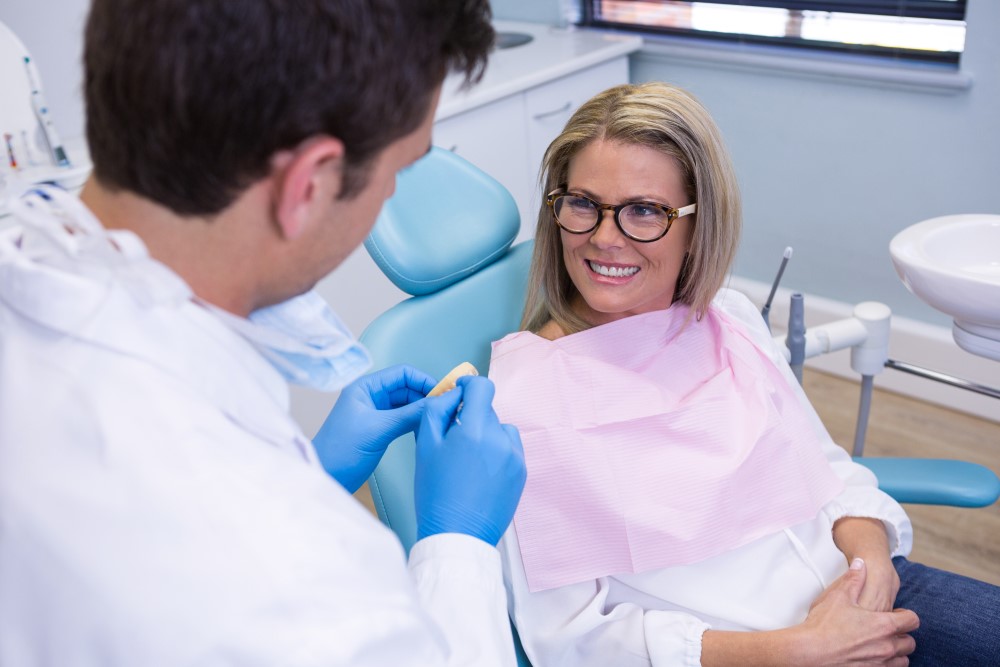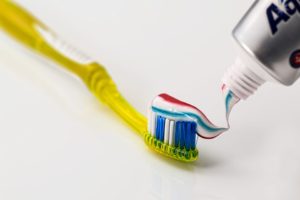
There are over 12 million new cases of cancer diagnosed each year. There are a large variety of different kinds of cancer, some of which are more preventable than others. It might seem obvious that brushing and flossing each day as well as avoiding tobacco can help protect you from oral cancer. However, there are types of oral cancer and other cancers that can be prevented through optimal oral care as well.
Dental Care and Oral Cancer
While it’s long been known that tobacco and heavy alcohol use are the main causes of oral, head, and neck cancer, poor oral health has recently been added to the list. A 2007 study published in American Journal of Epidemiology found that poor mouth health and missing teeth were strongly linked to the development of oral cancer. Likewise, patients with healthy smiles were found to be far less likely to develop oral cancer. If you have been diagnosed with oral cancer, know that common oral health problems such as gum disease and tooth decay could be making the condition worse. Visiting our dental office regularly for professional cleanings, examinations, and oral cancer screenings to help catch signs of oral cancer early and make treatment easier and more effective.
Oral Health and Other Cancers
Poor oral health has been shown to be tied to other types of cancers outside of the mouth. For example, a recent study conducted by NYU Langone Health’s Perlmutter Cancer Center found that certain types of bacteria in patients with gum disease was tied to a higher risk of developing esophageal cancer. While esophageal cancer only accounts for 1% of new cancer cases diagnosed annually, over 90% of patients will die of the disease. Untreated gum disease opens up the tissues around the teeth to bacterial infection, allowing these harmful bacteria to enter the bloodstream and infect other parts of the patient’s body. Maintaining optimal oral health can help protect you from this threat.
Your oral health effects much more than just your mouth. If you’re not taking care of your teeth, tongue, and gums, you could significantly increase your risk of developing cancer without even realizing it. If you’d like to learn more about the connection between oral health and cancer, contact DiChristofano & DiChristofano Dental Care to schedule an examination and cleaning with our Norridge dentist today!







 Along with cooler weather and the end of year school break, winter brings the return of cold and flu season. When you are focused on a child with a fever, cough, or vomiting, it can be easy to question getting them out of the sickbed to brush their teeth. However, keeping mouths clean and teeth healthy can be even more important during illness. Here are some useful tips for protecting your child’s oral health when they’re sick.
Along with cooler weather and the end of year school break, winter brings the return of cold and flu season. When you are focused on a child with a fever, cough, or vomiting, it can be easy to question getting them out of the sickbed to brush their teeth. However, keeping mouths clean and teeth healthy can be even more important during illness. Here are some useful tips for protecting your child’s oral health when they’re sick. When buying a toothbrush, toothpaste, or coming in to our office, you often hear the word “plaque” associated with the health of your teeth. Plaque is one of the main reasons why it is so important to keep up with a daily oral hygiene routine that includes brushing two times each day for at least two minutes, and flossing regularly as well. Here’s what you need to know about plaque and what it can do to your smile.
When buying a toothbrush, toothpaste, or coming in to our office, you often hear the word “plaque” associated with the health of your teeth. Plaque is one of the main reasons why it is so important to keep up with a daily oral hygiene routine that includes brushing two times each day for at least two minutes, and flossing regularly as well. Here’s what you need to know about plaque and what it can do to your smile. If the idea of biting into an ice cream sandwich makes you cringe, you may be one of the millions of people who suffer from sensitive teeth. This is often caused by movement of fluid in the dentin – the soft inner tissue beneath the enamel of your tooth. This motion irritates the tooth nerve, creating a tingling sensation and sometimes pain.
If the idea of biting into an ice cream sandwich makes you cringe, you may be one of the millions of people who suffer from sensitive teeth. This is often caused by movement of fluid in the dentin – the soft inner tissue beneath the enamel of your tooth. This motion irritates the tooth nerve, creating a tingling sensation and sometimes pain. Due to the anxiety or embarrassment it can cause, halitosis – or bad breath – can be difficult for many people to face. However, clean-smelling breath may be easier than you think. Try these solutions to overcome halitosis and regain your confidence.
Due to the anxiety or embarrassment it can cause, halitosis – or bad breath – can be difficult for many people to face. However, clean-smelling breath may be easier than you think. Try these solutions to overcome halitosis and regain your confidence. Most serious oral health issues can be prevented by maintaining an effective routine of dental hygiene and in-office care. However, you could be at higher risk for some oral illnesses due to hereditary factors. Awareness and proper treatment can help minimize these risks. Here are a few of the most common oral health concerns that are affected by genetics.
Most serious oral health issues can be prevented by maintaining an effective routine of dental hygiene and in-office care. However, you could be at higher risk for some oral illnesses due to hereditary factors. Awareness and proper treatment can help minimize these risks. Here are a few of the most common oral health concerns that are affected by genetics.